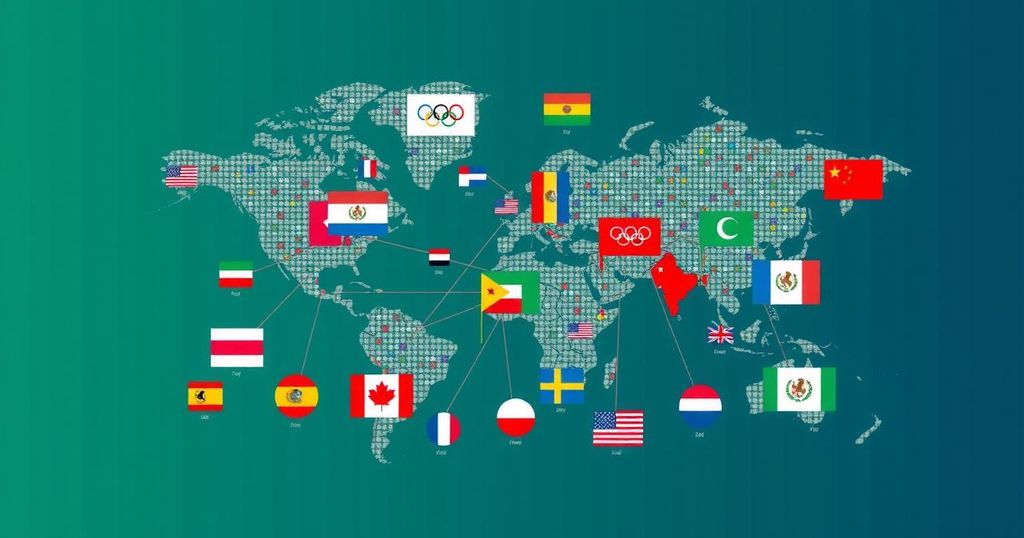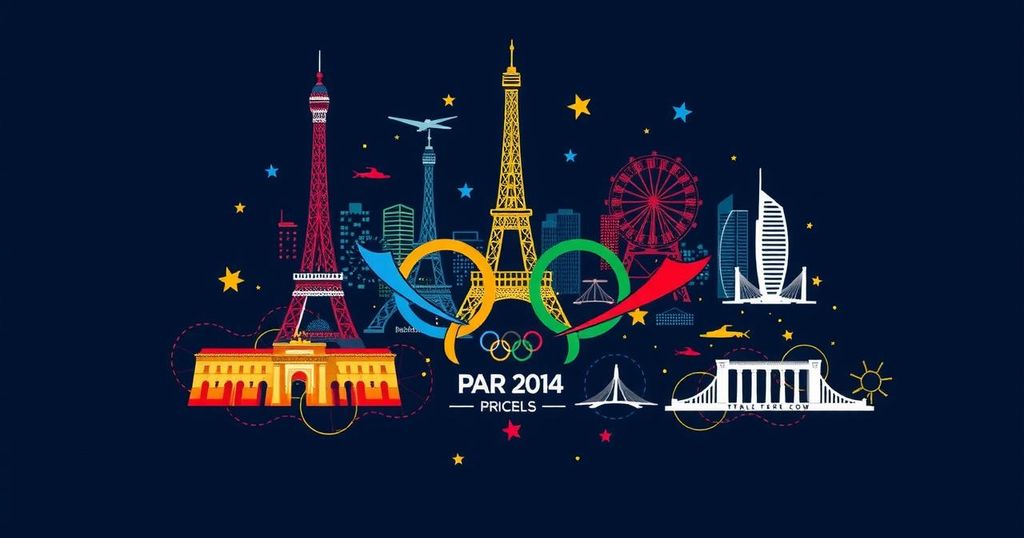The Global Landscape of Olympic Participation: A Comprehensive Overview
The Olympic Games have served as a unifying event for nations across the globe since their modern revival in 1896, when participants from 14 countries gathered to compete. Over the years, nations from every continent, save for Antarctica, have continued to send athletes to this prestigious global competition. Various cities around the world have also hosted the Games, with notable exceptions being the continents of Africa and Antarctica.
At present, there are 195 recognized countries worldwide, nearly all of which possess official Olympic committees that allow them to send national teams to compete. The Olympics have seen participation from nations that no longer exist, such as Yugoslavia and West Germany.
In North America, the United States has played a prominent role in the Olympics since the inaugural Games in 1896, returning for every subsequent event with the exception of the 1980 Moscow Olympics, which it boycotted in protest of the Soviet Union’s invasion of Afghanistan. To date, the United States holds the record for the most Olympic medals won, totaling 3,094. Additionally, it has hosted eight Olympic events and is slated to host the Summer Olympics in 2028 in Los Angeles and the Winter Olympics in Salt Lake City in 2034. Other North American participants include Canada and Mexico, both of which joined the Olympics in 1900. Canada has hosted three Olympic events, while Mexico has primarily competed in summer sports due to its climatic conditions and hosted the Games in Mexico City in 1968.
A list of the North American countries represented at the 2024 Paris Olympics is as follows: Antigua and Barbuda, Aruba, Bahamas, Barbados, Belize, Bermuda, Cayman Islands, Canada, Costa Rica, Cuba, Dominican Republic, Dominica, El Salvador, Grenada, Guatemala, Haiti, Honduras, Jamaica, Mexico, Nicaragua, Panama, Puerto Rico, Saint Kitts and Nevis, Saint Lucia, St. Vincent and the Grenadines, Trinidad and Tobago, United States of America, Virgin Islands (United Kingdom), and Virgin Islands (United States).
South America, despite its size and population, has only hosted one Olympic Games, in Brazil during the 2016 Rio de Janeiro Summer Olympics. Athletic participation from this continent has evolved since the Games’ inception, with countries such as Argentina, Peru, and Colombia involved as early as 1900. Brazil leads South America with a medal count of 170, followed by Argentina at 80 and Colombia with 38. The South American nations participating in the 2024 Paris Olympics include: Argentina, Bolivia, Brazil, Chile, Colombia, Ecuador, Guyana, Paraguay, Peru, Suriname, Uruguay, and Venezuela.
Europe, the birthplace of both ancient and modern Olympic Games, has been a frequent host, with France leading in hosting six events. Other European nations known for hosting include the United Kingdom, Italy, and Germany. Presently, nations such as Russia and Belarus face restrictions from participating in the 2024 Games due to political circumstances; however, they are still allowed to compete as independent athletes. Countries participating in the 2024 Paris Olympics from Europe include: Albania, Andorra, Armenia, Austria, Azerbaijan, Belgium, Bosnia and Herzegovina, Bulgaria, Cyprus, Croatia, Czechia, Denmark, Spain, Estonia, Finland, France, Georgia, Germany, Great Britain, Greece, Hungary, Ireland, Iceland, Israel, Italy, Kosovo, Latvia, Liechtenstein, Lithuania, Luxembourg, North Macedonia, Malta, Republic of Moldova, Monaco, Montenegro, Netherlands, Norway, Poland, Portugal, Romania, San Marino, Serbia, Slovakia, Slovenia, Sweden, Switzerland, Türkiye, and Ukraine.
Asia has a rich Olympic history, with numerous nations participating and hosting events, notably Japan with four memorable Olympic Games. China has facilitated both Summer and Winter Olympics in its capital, Beijing. The countries from Asia that participated in the 2024 Paris Olympics are Afghanistan, Bahrain, Bangladesh, Bhutan, Brunei Darussalam, Cambodia, China, South Korea, Hong Kong, India, Indonesia, Iran, Iraq, Japan, Jordan, Kazakhstan, Kyrgyzstan, Kuwait, Laos, Lebanon, Malaysia, Maldives, Mongolia, Myanmar, Nepal, Oman, Pakistan, Palestine, the Philippines, Qatar, North Korea, Saudi Arabia, Singapore, Sri Lanka, Syria, Tajikistan, Chinese Taipei, Thailand, Timor-Leste, Turkmenistan, United Arab Emirates, Uzbekistan, Vietnam, and Yemen.
The African continent has yet to host an Olympic Games. However, participation has increased significantly, with South Africa being a long-time participant since 1904. The continent has primarily focused on summer sports, culminating in impressive medal counts—with Kenya leading at 124 medals, followed by South Africa with 95 and Ethiopia with 62. Countries from Africa that took part in the 2024 Paris Olympics include: Algeria, Angola, Benin, Botswana, Burkina Faso, Burundi, Cameroon, Cabo Verde, Central African Republic, Chad, Comoros, Congo, Democratic Republic of the Congo, Côte d’Ivoire, Djibouti, Egypt, Eritrea, Eswatini, Ethiopia, Gabon, Gambia, Ghana, Guinea, Guinea-Bissau, Equatorial Guinea, Kenya, Lesotho, Liberia, Libya, Madagascar, Malawi, Mali, Morocco, Mauritius, Mauritania, Mozambique, Namibia, Niger, Nigeria, Uganda, Rwanda, São Tomé and Príncipe, Senegal, Seychelles, Sierra Leone, Somalia, South Africa, South Sudan, Sudan, Tanzania, Togo, Tunisia, Zambia, and Zimbabwe.
Finally, Oceania encompasses several island nations, with Australia being a foundational participant since the inaugural Games. The region has hosted only one Olympic event, the 2000 Summer Olympics in Sydney, with Brisbane set to host in 2032. Australia has commendably amassed 610 Olympic medals over its participation history. Oceania’s delegates in the 2024 Paris Olympics comprise American Samoa, Australia, Cook Islands, Fiji, Guam, Kiribati, Marshall Islands, Federated States of Micronesia, Nauru, New Zealand, Palau, Papua New Guinea, Solomon Islands, Samoa, Tonga, Tuvalu, and Vanuatu.
In conclusion, with 203 unique National Olympic Committees participating in the 2024 Summer Olympics in Paris, this venerable sporting tradition continues to provide a remarkable platform for fostering international connections through athletic endeavors. Future developments regarding the Olympics promise to maintain this engaging legacy, as we look forward to celebratory and competitive moments in the world of sports.








Post Comment